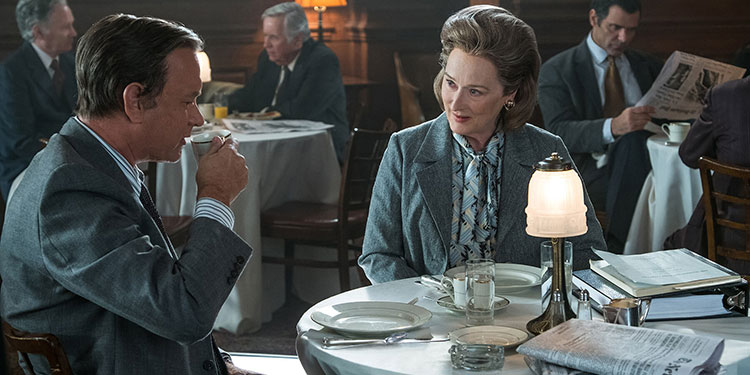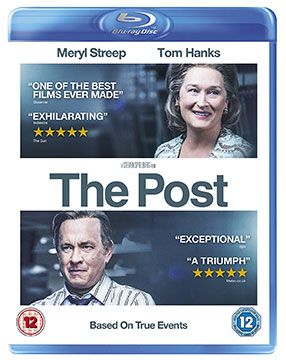
Director: Steven Spielberg
Running Time: 111
Certificate: 12
Release Date: May 21st 2018 (UK)

He may be in his 70s but Steven Spielberg shows no signs of slowing down. He managed to slot in The Post while simultaneously making Ready Player One, something most directors half his age wouldn’t even contemplate let alone succeed at.
The Post is a bit of an old school flick, set in the 1970s and telling the story of the Pentagon Papers, a leaked set of documents that revealed that while in public the military and government was still positive about the war in Vietnam, privately many felt that it was unwinnable and that official finding bore this out. The authorities from President Richard Nixon downwards unsurprisingly didn’t want this made public, while the press felt it was imperative to publish it.
The film follows what happened at the Washington Post, which at the time still a family-owned paper led by America’s first female publisher, Kay Graham (Meryl Streep), someone many think shouldn’t be in charge – not least because she’s a woman. There’s also legendary editor Ben Bradlee (Tom Hanks), who’s keen to publish and unlike some other papers, isn’t afraid to go into battle in order to do so.
As the Pentagon attempts to prevent the most damaging parts of the leak being released – both by soft pressure and legal manoeuvring. The owner, editor and others at the Washington Post must wrestle with the issues, with Kay ultimately the one who must decide whether they should stand up for the truth, even though it could result in her paper being destroyed.
With a sharp script and a seasoned hand in the director’s chair, what could have been a dull and worthy movie is surprisingly gripping. Having Hanks and Streep together on the screen for the first time ever doesn’t hurt either.
Much has been made about this being a direct response to Trump’s attacks on the press, and while it is, it’s a more complex response than you might expect. Rather than just standing up for press freedom, it attempts to unpack the complexities of what the media are dealing with at important moments, and that there are times when they are the only way the public will ever discover the truth. Admittedly, the film does ignore whether the press also constantly gives massive ammunition to its detractors and whether in the modern age of fragmented media things are rather different than they were in the 70s. However, the movie’s core message resonates in a way that should speak to people whatever their political stripe.
Indeed, I did wonder whether Spielberg made The Post not just as a riposte to Trump, but also as a reminder to journalists what they’ve meant to be doing.
The Post is told in a relatively simple style, concentrating on what happened and the meaning behind it, rather than creating unnecessary melodrama or exploring the characters too much. Rather like Spotlight and its most obvious ancestor, All The President’s Men, it is a procedural that uses the power of its story to pull in the audience and it does it well. Indeed, I was genuinely surprised that what could easily have been a very boring movie was made so watchable.
Overall Verdict: The Post may not be a perfect movie – hence why despite getting some early Oscar buzz no one was too surprised when it failed to pick up any gongs on the night – but it is an entertaining and sometimes powerful one that offers a timely reminder about what press freedom was designed to protect.
Reviewer: Tim Isaac
Leave a Reply (if comment does not appear immediately, it may have been held for moderation)